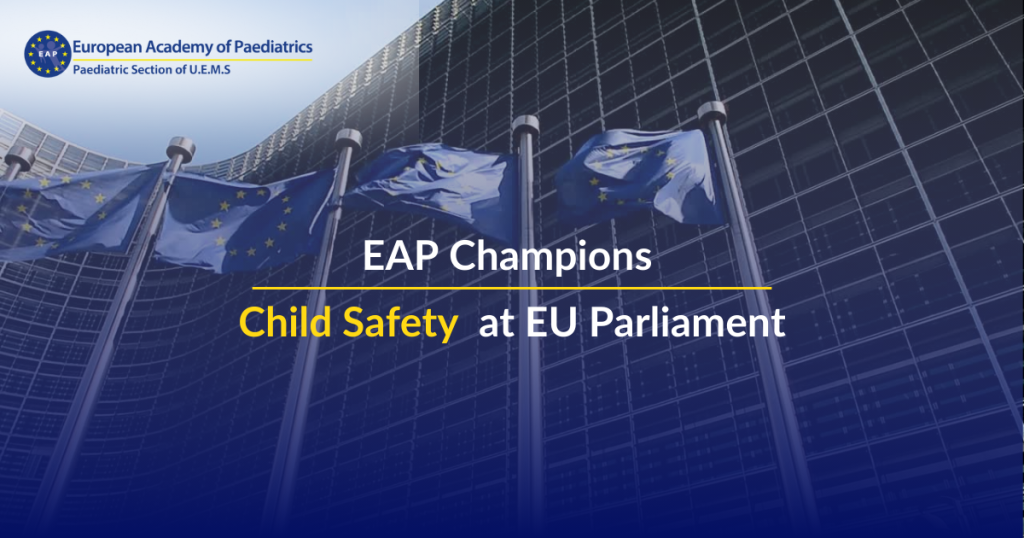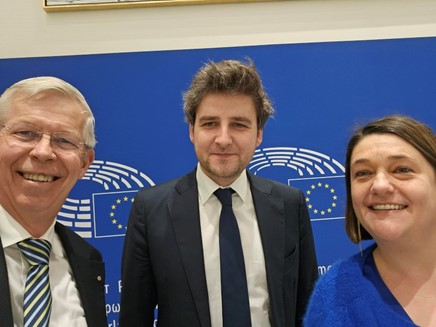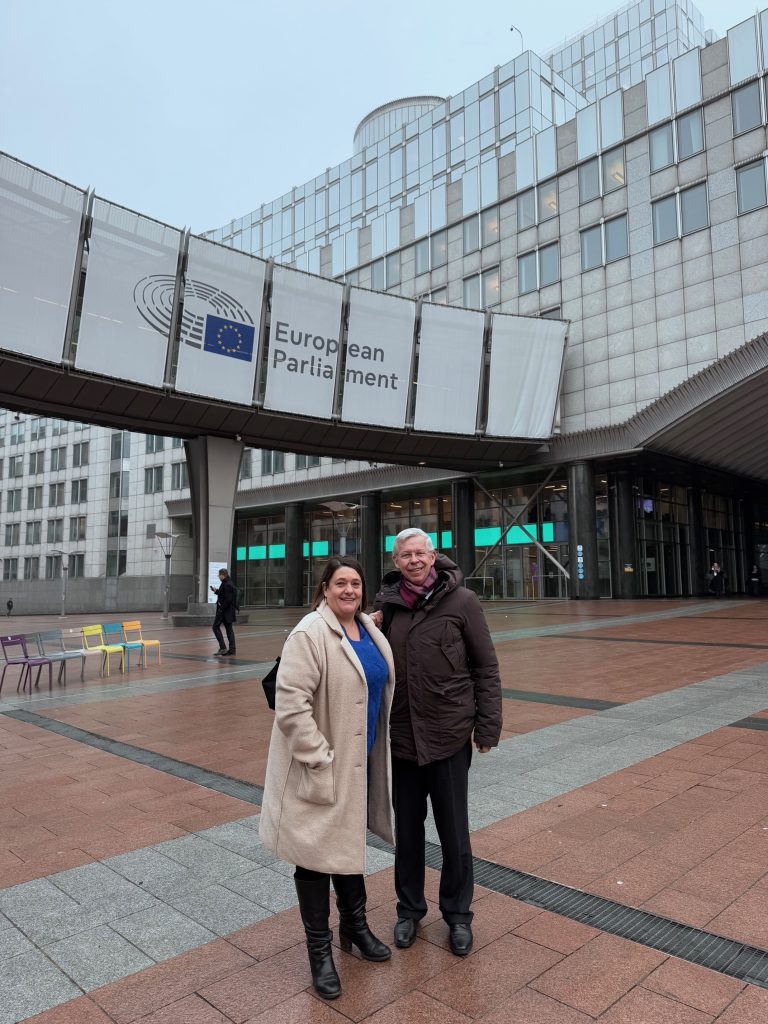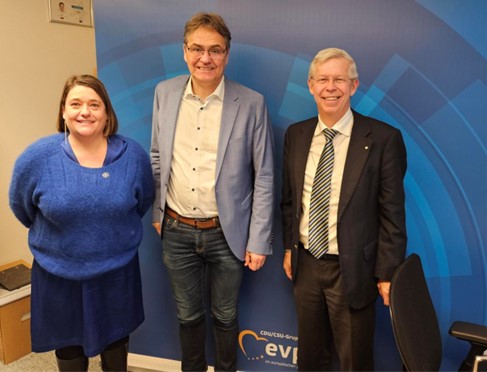
Policy Officer in the Cabinet of the European Parliament President Roberta Metsola.
EU Commission, Brussels, Belgium
Chairman of bioethics working party of EPP Group (since 1999)
EPP Group, Brussels, Belgium
Health and Food Safety, Medical Products and Innovation (SANTE.D)
Brussels, Belgium
Meetings Between EAP & the EU Commission
A pivotal moment in advancing child safety policies in Europe.

During a meeting with Mr. Kamil Maj, Policy Officer in the Cabinet of the European Parliament President Roberta Metsola, The EAP President, Prof. Berthold Koletzko, and Secretary General, Prof. Ann de Guchtenaere re-emphasized the academy’s demand that Europe must do more to protect young children against the dangers of swallowing lithium coin button batteries and explore actionable solutions to protect them. Referring to the letter of EAP to the presidents of the European Commission and the European Parliament, options for regulations to require child proof button battery compartments of mobile household devices and child proof packaging for sold batteries and their implementation in European legislation were explored. A parliamentary inquiry to the Commission has been submitted, and further steps are considered once the Commission has responded.

They also met with Dr. Peter Liese, MEP (EPP), to address the critical shortage of essential medical devices for children, which has led to severe challenges in pediatric care. Dr. Liese expressed his commitment to supporting legislation aimed at reducing the barriers to conformity assessment for pediatric medical devices, thereby facilitating their market access and availability. He further pledged ongoing collaboration to address this pressing issue.
In another meeting with Prof. Rainer Becker and Peter Bischoff-Everding from the Directorate-General for Health and Food Safety (DG SANTE) at the European Commission, the EAP representatives highlighted the significant challenges faced by children reliant on unavailable medical devices. Specific cases, such as the lack of catheters necessary for peritoneal dialysis, were presented as examples of the urgent need for action. The EAP reiterated its commitment to advocating for policy measures that prioritize the interests and well-being of children and will continue to engage in these vital discussions to support meaningful change.


New ways to test high-risk medical devices.
Manufacturers of medical devices need to test their products before being allowed to market them. Specifically, they require clinical data showing their medical device is safe and efficient. In this context, the EU-funded CORE-MD project will translate expert scientific and clinical evidence on study designs for evaluating high-risk medical devices into advice for EU regulators. The project will propose how new trial designs can contribute and suggest ways to aggregate real-world data from medical device registries.
It will also conduct multidisciplinary workshops to propose a hierarchy of levels of evidence from clinical investigations, as well as educational and training objectives for all stakeholders, to build expertise in regulatory science in Europe. CORE–MD will translate expert scientific and clinical evidence on study designs for evaluating high-risk medical devices into advice for EU regulators, to achieve an appropriate balance between innovation, safety, and effectiveness. A unique collaboration between medical associations, regulatory agencies, notified bodies, academic institutions, patients’ groups, and health technology assessment agencies, will systematically review methodologies for the clinical investigation of high-risk medical devices, recommend how new trial designs can contribute, and advise on methods for aggregating real-world data from medical device registries with experience from clinical practice The consortium is led by the European Society of Cardiology and the European Federation of National Associations of Orthopaedics and Traumatology, and involves all 33 specialist medical associations that are members of the Biomedical Alliance in Europe.